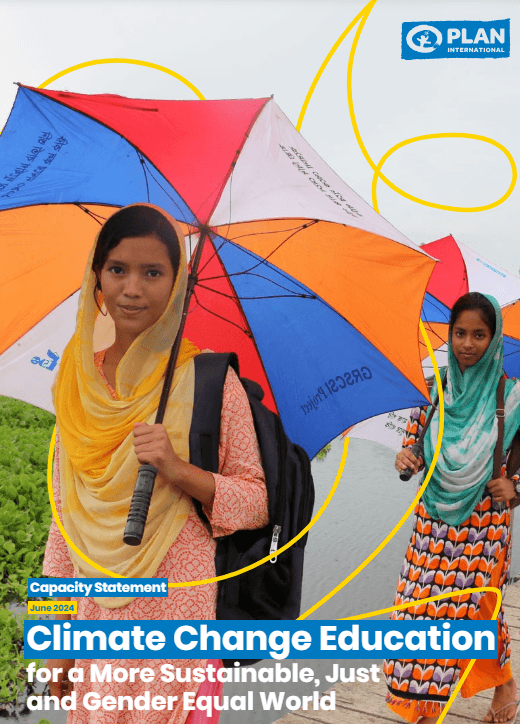Climate change education capacity statement
For a more sustainable, just and gender equal world.
Plan International’s capacity on climate change education, including an overview of the conceptual framework, programming and advocacy approaches, and best practices through case studies from across the organisation.

Climate change and environmental degradation are intergenerational, colonial, gender, and economic justice issues. For children, adolescents and youth, the climate crisis poses a direct and indirect threat to their right to education. But education is not only affected by climate change: it is also
a key solution to addressing its harmful impacts.
Plan International believes that all children, adolescents, and young people have a fundamental and universal right to access and complete inclusive quality education, from pre-primary through to secondary level. Furthermore, Plan International promotes a gender-transformative approach that
addresses structural injustices and oppression, which are at the basis of gender inequality and the climate crisis.
We are pleased to present this capacity statement on Plan International’s work on climate change education, which summarises nearly two decades of promising practices from our programming and influencing work: from child-led Disaster Risk Reduction (DRR) education in Asia-Pacific to global youth-led influencing of Conference of the Parties (COP) outcomes.
This document aims to build knowledge and understanding of the organisation’s work and inform the development of future programming and advocacy efforts in climate change education. It seeks to inform Plan International’s partners and stakeholders about the organisation’s work, capacity and
added value in the sector.
Download the capacity statement:
Climate Change Education Capacity Statement – English
1.80 mb
Climate Change Education Capacity Statement – French
1.71 mb
Climate Change Education Capacity Statement – Spanish
3.96 mb


